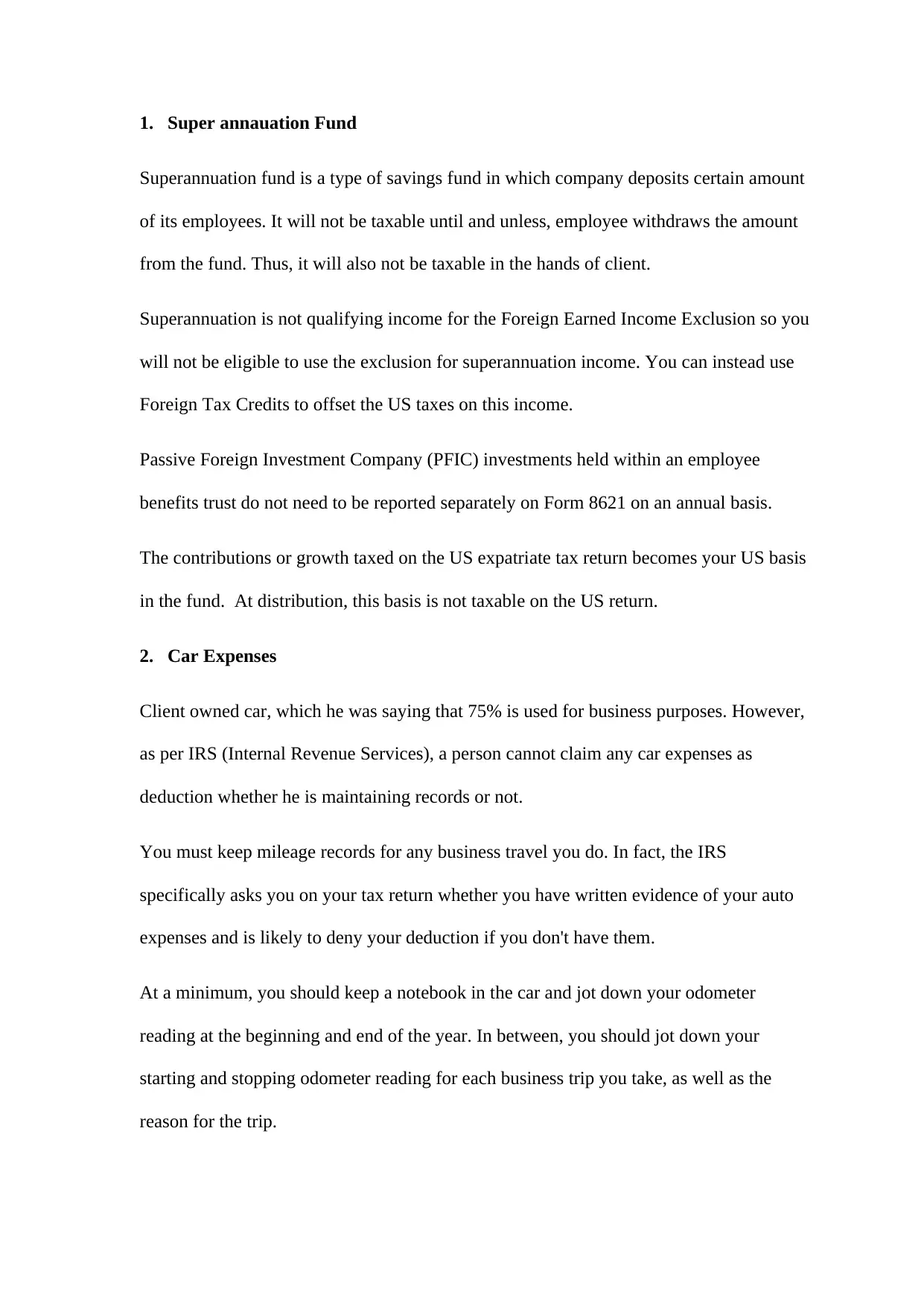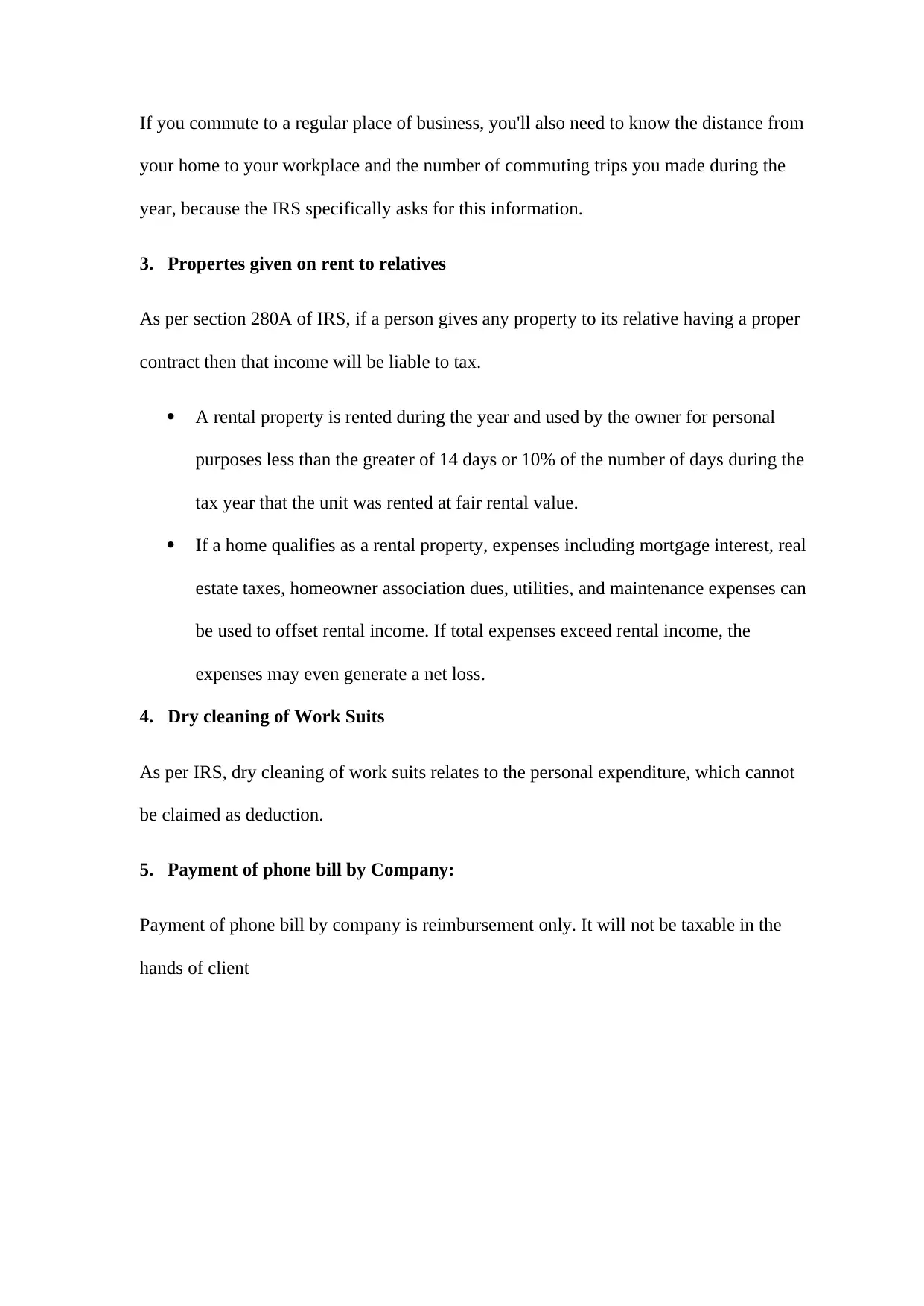Comprehensive Analysis of Superannuation Fund and Tax Implications
VerifiedAdded on 2019/10/18
|2
|536
|353
Homework Assignment
AI Summary
This assignment provides a detailed analysis of superannuation funds and their associated tax implications, as well as IRS guidelines. It covers various aspects, including the tax treatment of superannuation funds, the eligibility for Foreign Earned Income Exclusion, and the use of Foreign Tax Credits. The analysis also examines the tax treatment of client-owned car expenses, emphasizing the importance of maintaining mileage records for business travel. It further explores the tax implications of renting properties to relatives, as per section 280A of the IRS, and the deductibility of expenses such as dry cleaning of work suits and the payment of phone bills by the company. Overall, the assignment provides a comprehensive overview of the tax implications of various financial transactions and expenses, offering insights into relevant IRS regulations and guidelines.
1 out of 2








![[object Object]](/_next/static/media/star-bottom.7253800d.svg)